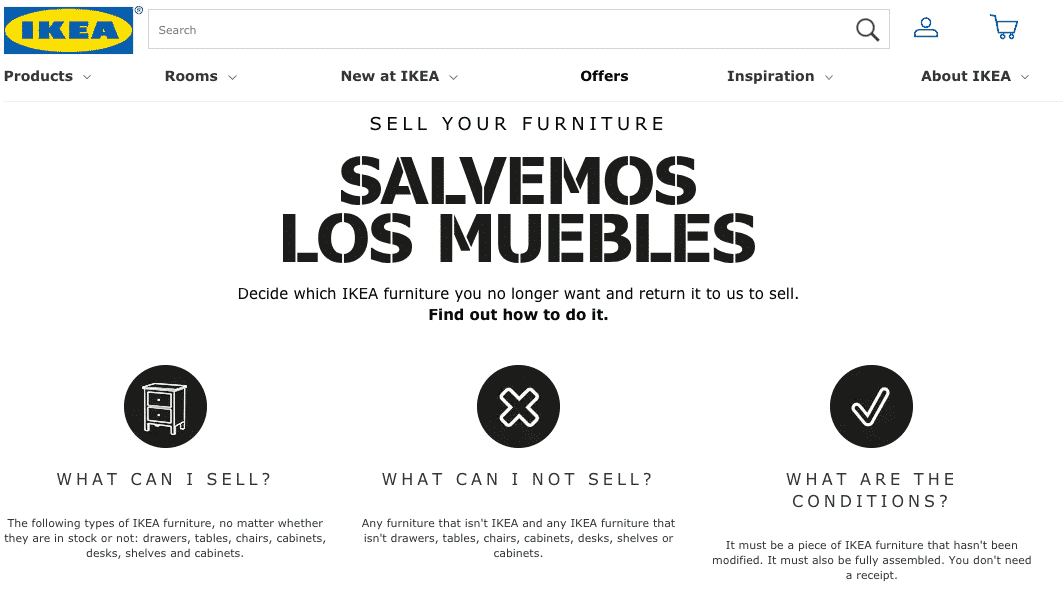IKEA has started buying and reselling its own furniture in Canada and a number of other countries. In this way, the Swedish company wants to extend the life of its products and contribute to reducing the amount of waste in its industry.
The transition to a circular economy requires new business models. Various (office-) furniture manufacturers investigate the possibilities of Furniture as a Service, lease models and supplying products where a buy-back guarantee is issued. In all models, one of the primary questions is who owns the products. On the one hand, there are several companies that work on lease concepts where the supplier remains the owner of the products. The other option is now being put into practice by IKEA: Products sold by IKEA, where the user is also the owner of the product, can be offered at any time to IKEA, which buys them back and resells them in its own stores.
Conditions for the sell-back service
IKEA does set a number of conditions for the cooperation: First of all, not all products are eligible for the sell-back-service. Until this moment the offer is limited to tables, chairs, desks and cupboards. In addition, the products must be handed in by the customer at an IKEA store of choice and they must be assembled before IKEA accepts them. Finally, the agreed purchase price is not paid in cash, but in the form of a shop credit.
The purchased furniture is then placed in the bargain corner by IKEA for the same price as that for which the company purchased the products.
Announced during the Zero Waste Conference
 The initiative was announced by Brendan Seale, head of sustainability at IKEA, at the Zero Waste Conference in Vancouver. Seale says to the Huffington Post “This initiative is a way for IKEA to reduce the amount of waste that’s connected with our business.” The repurchase action is currently the first to start in Canada, but there are similar initiatives in some other countries, including Spain and Japan. Seale recognizes that the fact that customers have to return their furniture to IKEA in particular can be a barrier: “We may be going to pick up the furniture from our customers in the future, but I can not say anything about that yet. We started with this concept last week and we have to wait and see how it develops.
The initiative was announced by Brendan Seale, head of sustainability at IKEA, at the Zero Waste Conference in Vancouver. Seale says to the Huffington Post “This initiative is a way for IKEA to reduce the amount of waste that’s connected with our business.” The repurchase action is currently the first to start in Canada, but there are similar initiatives in some other countries, including Spain and Japan. Seale recognizes that the fact that customers have to return their furniture to IKEA in particular can be a barrier: “We may be going to pick up the furniture from our customers in the future, but I can not say anything about that yet. We started with this concept last week and we have to wait and see how it develops.

